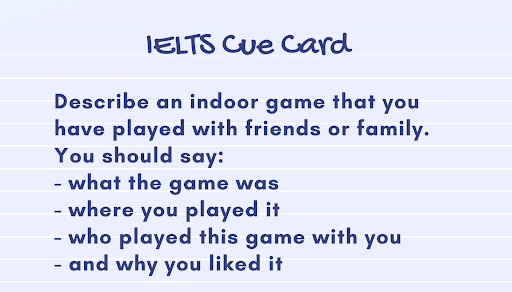IELTS is a global English language exam that assesses a candidate’s listening, writing, reading, and speaking abilities in the English language. Students must pay close attention to all portions to achieve their desired high score. Although the Speaking module appears to be less challenging than others, many students still need assistance to excel in this section. This could be because of difficulties during face-to-face interviews or discussions or a lack of confidence to express themselves.
In order to overcome such difficulties, students must dedicate enough time to practicing these sections. The IELTS Cue Card offers test takers a topic or prompt and gives them an appropriate amount of time to talk about it. This cue card is an integral part of the exam that checks for applicants' speaking abilities, fluency, and capacity for clear thought under pressure.









